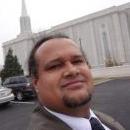-
Posts
3421 -
Joined
-
Last visited
Reputation Activity
-
 Seminarysnoozer got a reaction from askandanswer in Marriage in the next life, if single
Seminarysnoozer got a reaction from askandanswer in Marriage in the next life, if single
President Lorenzo Snow“There is no Latter-day Saint who dies after having lived a faithful life who will lose anything because of having failed to do certain things when opportunities were not furnished him or her. In other words, if a young man or a young woman has no opportunity of getting married, and they live faithful lives up to the time of their death, they will have all the blessings, exaltation, and glory that any man or woman will have who had this opportunity and improved it. That is sure and positive” (Teachings of Lorenzo Snow, 138).
Elder Richard G. Scott“If you are single and haven’t identified a solid prospect for celestial marriage, live for it. Pray for it. Expect it in the timetable of the Lord. Do not compromise your standards in any way that would rule out that blessing on this or the other side of the veil. The Lord knows the intent of your heart. His prophets have stated that you will have that blessing as you consistently live to qualify for it” (in Conference Report, Apr. 1999, 33; or Ensign, May 1999, 27).
-
 Seminarysnoozer got a reaction from The Kid in Talking Animals
Seminarysnoozer got a reaction from The Kid in Talking Animals
Even if it was accurate, how do you know Joseph wasn't just joking? Which would make it a completely different context from the other examples you gave.
-
 Seminarysnoozer got a reaction from Edspringer in And now, infinite regression has me up till 2 in the morning...
Seminarysnoozer got a reaction from Edspringer in And now, infinite regression has me up till 2 in the morning...
Just to emphasize a certain point, to be "one" means not only to be of one mind or spirit but to also posses all that the Father has. The story of the prodigal son points this out clearly. At the end of the story, the word "all" is used; " 31 And he said unto him, Son, thou art ever with me, and all that I have is thine."
Cross reference "all" and this is what we get; D&C 84:38 " 38 And he that receiveth my Father receiveth my Father’s kingdom; therefore all that my Father hath shall be given unto him." (all that the Father has can be given to anyone who reaches that highest Kingdom) ... and that "all" cross referenced brings us to; 3 Nephi 28: " 10 And for this cause ye shall have fulness of joy; and ye shall sit down in the kingdom of my Father; yea, your joy shall be full, even as the Father hath given me fulness of joy; and ye shall be even as I am, and I am even as the Father; and the Father and I are one;" (people that reach that level shall be like Christ, one with the Father) ...and D&C 78 explains that the whole plan of Salvation is to be equal in all things, this is the lesson He is trying to teach us and the test is to see who is okay with being equal in all things; " 4 For a permanent and everlasting establishment and order unto my church, to advance the cause, which ye have espoused, to the salvation of man, and to the glory of your Father who is in heaven;
5 That you may be equal in the bonds of heavenly things, yea, and earthly things also, for the obtaining of heavenly things.
6 For if ye are not equal in earthly things ye cannot be equal in obtaining heavenly things;
7 For if you will that I give unto you a place in the celestial world, you must prepare yourselves by doing the things which I have commanded you and required of you."
The glory of the Father is dependent on His sharing of the glory. The glory of the Father would be nothing if it was independently held. The Father's hope and Christ' hope is that we be "equal in the bonds of heavenly things." This is why charity and faith are so important, to allow us to "prepare" ourselves for that kind of life, where everything is shared. Or, we could chose a life of not sharing and not being equal, like one star differs from another.
-
 Seminarysnoozer got a reaction from Edspringer in And now, infinite regression has me up till 2 in the morning...
Seminarysnoozer got a reaction from Edspringer in And now, infinite regression has me up till 2 in the morning...
You gave excellent answers and I hope I don't detract from what you said.
I think one of the pivotal concepts in this discussion is the possibility for inheriting ALL. Without that concept, God has to be the so-called "God-zero". Inheriting ALL means taking on everything that the Father has, in that there is nothing lost or diminished in it's glory or importance as if the person receiving the inheritance is the one who did it in the first place. Once one can appreciate that concept then it is perfectly acceptable that our Father in Heaven at one point was not "God-zero" but now is.
To be "one" with God and Christ is based in the idea that the 'sum of the whole is greater than the sum of its parts'. Christ taught this lesson so many times, 'a house divided cannot stand', (Every kingdom divided against itself is brought to desolation; and every city or house divided against itself shall not stand), "if ye are not one ye are not mine", "that they all may be one; as thou, Father, art in me, and I in thee, that they also may be one in us: that the world may believe that thou hast sent me", etc.
We understand the definition of "one God" in the verse D&C 20; "Which Father, Son, and Holy Ghost are one God, infinite and eternal, without end. Amen." Obviously, "one God" can involve more than one individual and as the Lord's prayer suggests it can involve us too, that we may become "one". How?, by inheriting ALL that God has.
In other words, the growth to having ALL requires unity and the combination with others. By definition, it cannot be obtained individually. We, individually, do not have that potential. The "acorn" that turns into the tree, has to have Christ like traits, which is to love others as self (becoming one with others).
-
 Seminarysnoozer got a reaction from Sunday21 in counsel vs. commandment
Seminarysnoozer got a reaction from Sunday21 in counsel vs. commandment
In other words, if one is a member of the church, it is all commandment under the covenant of baptism.
-
 Seminarysnoozer got a reaction from SpiritDragon in I feel called to the LDS Church...but I still don't know if it's true
Seminarysnoozer got a reaction from SpiritDragon in I feel called to the LDS Church...but I still don't know if it's true
Our teachings seem to disagree with this response. We are told that we can inherit all that the Father has. If one inherits all the Father has then there cannot be separate universes. In fact I think that is what Celestial glory is, the ability to glorify in everyone's achievements. This is why Gods glory is to bring to pass the immortality and eternal life of man.
If all "Gods" share all then there is only one "God" and because they all share in each other's glory, our God is the highest, there is none other higher as they are all the highest. They are one, as Christ is one with God and wants us to be one.
Separation is the description of the Telestial Kingdom, as one star differs from another.
-
 Seminarysnoozer reacted to Traveler in New revelation?
Seminarysnoozer reacted to Traveler in New revelation?
Please be specific - what is a thing -- especially an physical, scientific or empirical thing that is in no way a thing of G-d. I submit that all things belong to G-d and only by the spirit of G-d are we able to make the connection and understanding that all things are things of G-d - without the spirit we tend to divide thinking and think in terms that some of G-d's creations are not actually things of G-d. I think you are missing deeper meanings of 1Cor.
Also I contend that the spirit of G-d can and does enlighten even the brain of mankind in order that any man can understand that we are the physical image and likeness of G-d. That by the power of the Holy Ghost - the truth of all things (including so-called secular things) are known.
-
 Seminarysnoozer got a reaction from askandanswer in New revelation?
Seminarysnoozer got a reaction from askandanswer in New revelation?
Why? Cause you are JELLous of his ability to speak German?
-

-
 Seminarysnoozer reacted to mordorbund in Book of Abraham
Seminarysnoozer reacted to mordorbund in Book of Abraham
The scriptural mandate for learning "from the best books" explains why that learning is so necessary.
"And as all have not afaith, seek ye diligently and bteach one another words of cwisdom; yea, seek ye out of the best dbooks words of wisdom; seek learning, even by study and also by faith." (D&C 88:118).
We ought to be studious because not everyone has faith. So when we come to the topic of same-sex marriage on these fora, someone inevitably points out that the Family Proclamation is all well and good, but that it is LDS-centric. Your God may have a problem with it, but my God doesn't. With learning by study and faith, from the best books, comes the retorts of the instability it adds to society and the value of a stable family with a mother and a father. With the Word of Wisdom, those without faith actually do the legwork for us. The effects of alcohol and tobacco are already popularly known. They've already learned from the best books and study the value of this practice; I just need to introduce the faith.
Another reference from the same section encourages the early saints to be instructed "Of things both in aheaven and in the earth, and under the earth; things which have been, things which are, things which must bshortly come to pass; things which are at home, things which are abroad; the wars and the perplexities of the cnations, and the judgments which are on the land; and a dknowledge also of countries and of kingdoms—" (D&C 88:79).
Note that not all of these things are secular - such as "things which must shortly come to pass" - and some are a mixed bag - "the judgments which are on the land". But again we do have a charge to gain "secular knowledge". Please note that this charge also has a purpose.
"That ye may be prepared in all things when I shall send you again to amagnify the calling whereunto I have called you, and the bmission with which I have commissioned you." (D&C 88:80).
They were to learn of nations, countries, and kingdoms because they would soon be going abroad to preach the gospel (ah, the prophecies and judgments part makes more sense now). If you go to the Seventies Hall in Nauvoo you'll see that it was intended to teach these very things (complete with a library/museum upstairs) to prepare them for their missions. I recall getting a similar-themed crash course in the MTC when they handed me a culture-gram to teach me what life is like in the United States.
I would say this is hardly scholarship or academia at work. A search for "learning" in the D&C tells me the two things Jesus really wants me to learn is Him ("learn of me") and obedience.
And since intelligence is often used as a synonym of knowledge or learning, I'll throw this out there as well. When God talks about intelligence, He defines it for us and tells us how to gain it.
"The aglory of God is bintelligence, or, in other words, clight and truth. Light and truth forsake that aevil one." (D&C 93:36-37). Elsewhere he defines Abraham-style intelligence as 'the light of truth" (D&C 93:29).
When intelligence is coupled with knowledge, we are again pointed away from scholarship and academics. "And if a person gains more aknowledge and intelligence in this life through his bdiligence and obedience than another, he will have so much the cadvantage in the world to come." (D&C 130:18-19). Saving knowledge and intelligence comes from diligence and obedience.
So while there can be value in traditional learning for building Zion and sharing the gospel, the learning God wants us to achieve is that gained through obedience.
-
 Seminarysnoozer reacted to Traveler in Book of Abraham
Seminarysnoozer reacted to Traveler in Book of Abraham
Without question the Book of Abraham is an intellectual enigma. It would seem obvious that the text we have is by any measure a stretch from the facsimile that remain. But there is no question the style and structure is absolutely flavored in ancient Egyptian style and format. Ancient Egyptian science, mathematics and physics was based in relationships and ratios. This science was successful in producing the most enduring architecture in the entire history of mankind - including present day. Their understanding of sound harmonics is the foundation of modern music and their understanding of light and color harmonics was not duplicated in modern times until we mastered laser technology. Wonder of wonder - this technology came from no where and exploded in ancient Egypt during the era of Abraham.
Our current science is based in a foundation of the rudimentary constructs of Newtonian physics and number theory. A couple of interesting constructs between modern Newtonian physics and number theory and relativistic comparisons to ancient Egyptian science and mathematics comes from the representation of pi and the square root of 2. Modern mathematics represents both of these numbers and ratios as irrational number that have and continue to confuse students trying to understand modern theory. The ancient Egyptians simply understood the ratio of pi as the ratio of a circle to its diameter and the square root of 2 as the ratio of of a side of a square to its diagonal. Sizing architecture to the ancient Egyptian was a simple matter of geometric ratios compared to modern mathematics based in number theory.
Now with this background read and compare Abraham chapter 3 with Doctrine and Covenants section 88. Realizing that both cover in essence explanations of the same doctrinal ideas that came from the single source of Joseph Smith that was not an expert in Newtonian physics (obvious from personal writings) nor was there any understanding of ancient Egyptian science during the lifetime of Joseph. One being a wonderful match of ancient Egyptian understanding and one being a wonderful match for someone from a Newtonian era.
Say what you will about Joseph Smith and his 3rd grade education but the empirical evidence that is presented in the text and structure of the Book of Abraham far exceeds even the most accomplished experts of our day. But the criticism remains that the translation of the Book of Abraham and the remaining facsimiles make no sense in our modern setting.
-
 Seminarysnoozer reacted to Traveler in Ying and Yang
Seminarysnoozer reacted to Traveler in Ying and Yang
anatess and SeminaryS:
I believe part of the confusion is over opposing (opposite) verses competing things. In mathematical terms the intersection of opposite sets is the null or empty set. Thus there is no balance of opposites. For example there is no balance between divine righteousness and its opposite of sin. Thus any set that contains sin cannot have balance with divine righteousness and vice versa.
When we consider competing things - we realize that many times forces that are competing that are not opposite. Such forces create harmonics or dissidents pending of the type of or lack of balance. I believe the best example of competing forces that are not opposite is the example of Justice and Mercy. We know mercy is not opposite to justice. Injustice is opposite to justice. To best understand Yin and Yang as I have been taught - Mercy is the Yin or noble force and Justice is the Yang or strong force. I was taught that Yin is not just any force to match Yang but Yin is the noble, kind or cultured element. Likewise Yang is not any force but is the strong or powerful element. Thus strength become evil when not balanced with the nobility of kindness and cultured. By the same token nobility, kindness and culture becomes meaningless without strength and power to buoy it up. Competing things need balance - there is no balance with opposite things because the presents of one eliminates the other. An example in the opposites in light and darkness - balance ends up being one or the other there is no balance between state of light or dark. There can only be one or the other.
-
 Seminarysnoozer got a reaction from Traveler in more than one type of light?
Seminarysnoozer got a reaction from Traveler in more than one type of light?
Thanks, yes I get that.
I think what I was trying to convey was the idea that the symbolism had to use something that extends beyond itself without getting hung up on the thing that is delivering the extension.
If we were to use the metaphor of a telephone line, we wouldn't want to confuse the electrical impulses involved in sending the message converted to sound as the important center of power received. I think we get hung up, in general (not you), that somehow light itself carries an intrinsic power where it is just symbolic of something that can eminate and be transmitted to something else beyond itself as is the power of God. The metaphor is useful on many levels, of course, but one of which is the ability of light to eminate from one object and share its power with another body. There are not many natural things that can do that and so light becomes the easy metaphor for the power of God but one could also, if these things were understood well enough back then, use gravity, electricity, radiation etc.
Some of the confusion about it is that light is also used as a metaphor for intelligence, it is a convenient metaphor but also a source of confusion when one doesn't know which aspect of the metaphor a particular phrase is using. We would face similar problems if we used gravity as the metaphor, then a person might wonder, well does that mean God draws people in? Or if we used radiation as a metaphor, well does that mean a person would burn up if they got too close to God? Light, in my opinion, is one of those metaphors that comes with many overlaping meanings in the scriptures. But like you are saying the first step in not becoming confused about any metaphor is to not take it as literal. I agree with that.
-
 Seminarysnoozer reacted to Traveler in more than one type of light?
Seminarysnoozer reacted to Traveler in more than one type of light?
Again I am suggesting that the references to light associated with G-d is intended to be symbolic not empirical. In the symbolic example of infrared light being seen by goggles - I would make the symbolic comparison to faith being symbolic to goggles as necessary to see light that cannot be seen by "natural eyes". This is not intended to say that infrared light is divine light and that goggles are the same as having faith but to give symbolic example.
Likewise the darkness of Satan is not the same as the darkness of night - despite the reference to light being separated into day and night in Genesis. Genesis is in essence symbolic and as enlightening as Genesis is intended the symbolism can be demonstrated to be quite inaccurate in the various classical attempts to engage the symbolism empirically.
One of the reasons symbolism is engaged in divine teachings is to enable the inspired student into continued application. To avoid the idea of finding the meaning and thinking one is finish in understanding. By the very nature of symbolism it is not a matter of solving an equation in mathematics but seeking and arriving at possibilities that are obtained symbolically.
On this matter - what I find most interesting is in continual expanding thought and then in bringing expanded understanding full cycle by grounding such outreach with the obvious empirical crumbs (otherwise concealed) marking the path of truth. But this last statement is itself symbolic and can only be understood by someone well grounded in and willing to put on the goggles of faith.
-
 Seminarysnoozer reacted to Vort in Excommunication
Seminarysnoozer reacted to Vort in Excommunication
I can think of two obvious reasons to excommunicate someone:
To protect other members. The Church is a fellowship of Saints, literally the kingdom of God on earth. Having a "wolf in the fold" endangers all the other members. If a person is a predator, e.g. someone who preys on children, he or she must be separated from the community for the sake of others. Similarly, a spiritual predator who pretends to be one of the sheep but in reality seeks to destroy the spiritual commitment of others, must not be allowed to proceed unimpeded in his or her evil designs. In a sense, to protect the person himself or herself. We make covenants with God, and it is through our covenants that we are saved. Few people keep those covenants perfectly, so repentance is made available to us. But what of a person who freely violates covenants without any intention of keeping them? This is mockery of God, and serves actually to condemn the person. Better not to have any convenants at all than to openly defy your covenants. Thus, excommunication is a way to free a person from saving covenants that he or she is violating, and so are using to destroy themselves. There are probably other good reasons, but these two seem obvious to me.
-
 Seminarysnoozer reacted to Blackmarch in Reckoning of time
Seminarysnoozer reacted to Blackmarch in Reckoning of time
Perhaps thats just how long for a daily rotation, or perhaps time there is not hte same as time here. Who knows?
reckoning could be perception or it could be just a different yardstick, or physics, or it could be a temporal distortion, or perhaps it could be a different universe altogether that is seperate from ours, or perhaps he means the work/rest cycle. God hasn't really been uber specific on his time related to our time. This is just one of those areas where there's little info.
I don't think he's trying to teach what time is there compared to here exactly.
It, doesn't really matter at this point in time for us tho.
-
 Seminarysnoozer got a reaction from Crypto in Ying and Yang
Seminarysnoozer got a reaction from Crypto in Ying and Yang
I totally disagree with this idea. We are told numerous times that the body has it's own nature. Prophets have stated we are dual natured, not one nature with an extender. Recent general conference talks even have described the body as having it's own passions and drives. Elder Holland has spoken of mental disorders as something to be treated like we do any other type of illness of the body. In many areas of the scriptures we are taught that there is such a thing as the learning of man and the understanding of men and this occurs when a person does not listen to the spirit or has very little spiritual insight.
When a person has psychosis, hallucinations etc, is that generated from the spirit or are those spontaneous thoughts from the brain (the body)? If a person has Alzheimers was the spirit injured? Why does the body and the brain have to develop to a certain point and have certain characteristics and abilities before one can be held accountable? If the body does nothing but extend the spirit then there should be no reason why one with Down's syndrome is not held accountable for their actions. If a person with Tourrette's yells out an explitive during Sacrament meeting, you believe that was generated by the spirit alone, that the body is just the reflection of the spiritual input? Or could it be that the brain actually does generate spontaneous mortal thought with which we have to contend?
Unlike a computer, the brain, imagines, it makes up false information, it is run by self preservation (selfishness) in many different ways that can represent itself in terms of hunger, thirst, drive for power, jealousy, sexual drives, anger, prideful intellectualism etc. The filled in "blind spot" in your vision is made up by the brain. It created new information that was not there. Yes, it can do that! It is not made by the spirit. (As one small example.) Most dreams are made up by the brain.
We have a hard time separating what comes from the brain vs the spirit but most often the spirit is described as a still small voice type influence, it is hard to tune into it. The default, the natural man, does not listen to spiritual influences. So, in other words, most of our thought and actions and especially if one is not striving 100%of the time for spiritual insight, is driven by the mortal brain. If one did not work hard at it their thoughts would be occupied by mostly brain derived material not spirit. The carnal has to be overcome in order to let the spirit be the controling force in one's life. That is the test, what is in control the carnal man or the spiritual man. Most in this world do not have the spirit in control.
-
 Seminarysnoozer got a reaction from jerome1232 in Ying and Yang
Seminarysnoozer got a reaction from jerome1232 in Ying and Yang
I totally disagree with this idea. We are told numerous times that the body has it's own nature. Prophets have stated we are dual natured, not one nature with an extender. Recent general conference talks even have described the body as having it's own passions and drives. Elder Holland has spoken of mental disorders as something to be treated like we do any other type of illness of the body. In many areas of the scriptures we are taught that there is such a thing as the learning of man and the understanding of men and this occurs when a person does not listen to the spirit or has very little spiritual insight.
When a person has psychosis, hallucinations etc, is that generated from the spirit or are those spontaneous thoughts from the brain (the body)? If a person has Alzheimers was the spirit injured? Why does the body and the brain have to develop to a certain point and have certain characteristics and abilities before one can be held accountable? If the body does nothing but extend the spirit then there should be no reason why one with Down's syndrome is not held accountable for their actions. If a person with Tourrette's yells out an explitive during Sacrament meeting, you believe that was generated by the spirit alone, that the body is just the reflection of the spiritual input? Or could it be that the brain actually does generate spontaneous mortal thought with which we have to contend?
Unlike a computer, the brain, imagines, it makes up false information, it is run by self preservation (selfishness) in many different ways that can represent itself in terms of hunger, thirst, drive for power, jealousy, sexual drives, anger, prideful intellectualism etc. The filled in "blind spot" in your vision is made up by the brain. It created new information that was not there. Yes, it can do that! It is not made by the spirit. (As one small example.) Most dreams are made up by the brain.
We have a hard time separating what comes from the brain vs the spirit but most often the spirit is described as a still small voice type influence, it is hard to tune into it. The default, the natural man, does not listen to spiritual influences. So, in other words, most of our thought and actions and especially if one is not striving 100%of the time for spiritual insight, is driven by the mortal brain. If one did not work hard at it their thoughts would be occupied by mostly brain derived material not spirit. The carnal has to be overcome in order to let the spirit be the controling force in one's life. That is the test, what is in control the carnal man or the spiritual man. Most in this world do not have the spirit in control.
-
 Seminarysnoozer got a reaction from Vort in Ying and Yang
Seminarysnoozer got a reaction from Vort in Ying and Yang
I totally disagree with this idea. We are told numerous times that the body has it's own nature. Prophets have stated we are dual natured, not one nature with an extender. Recent general conference talks even have described the body as having it's own passions and drives. Elder Holland has spoken of mental disorders as something to be treated like we do any other type of illness of the body. In many areas of the scriptures we are taught that there is such a thing as the learning of man and the understanding of men and this occurs when a person does not listen to the spirit or has very little spiritual insight.
When a person has psychosis, hallucinations etc, is that generated from the spirit or are those spontaneous thoughts from the brain (the body)? If a person has Alzheimers was the spirit injured? Why does the body and the brain have to develop to a certain point and have certain characteristics and abilities before one can be held accountable? If the body does nothing but extend the spirit then there should be no reason why one with Down's syndrome is not held accountable for their actions. If a person with Tourrette's yells out an explitive during Sacrament meeting, you believe that was generated by the spirit alone, that the body is just the reflection of the spiritual input? Or could it be that the brain actually does generate spontaneous mortal thought with which we have to contend?
Unlike a computer, the brain, imagines, it makes up false information, it is run by self preservation (selfishness) in many different ways that can represent itself in terms of hunger, thirst, drive for power, jealousy, sexual drives, anger, prideful intellectualism etc. The filled in "blind spot" in your vision is made up by the brain. It created new information that was not there. Yes, it can do that! It is not made by the spirit. (As one small example.) Most dreams are made up by the brain.
We have a hard time separating what comes from the brain vs the spirit but most often the spirit is described as a still small voice type influence, it is hard to tune into it. The default, the natural man, does not listen to spiritual influences. So, in other words, most of our thought and actions and especially if one is not striving 100%of the time for spiritual insight, is driven by the mortal brain. If one did not work hard at it their thoughts would be occupied by mostly brain derived material not spirit. The carnal has to be overcome in order to let the spirit be the controling force in one's life. That is the test, what is in control the carnal man or the spiritual man. Most in this world do not have the spirit in control.
-
 Seminarysnoozer reacted to Crypto in Reckoning of time
Seminarysnoozer reacted to Crypto in Reckoning of time
They way that I read this, is the planet over "even the night" would refer to the moon above the earth.
So in terms of time, what is it that we are counting? Revolutions around the axis, revolutions around the earth? Sun? The effect of gravity on it's relative space time? (The effect on gravity from what, the sun? The earth? The galactic center? The place nearest unto God?
Is the model based on current understanding of astronomy, or not? It is allegory instead?
These things would make a difference to how I would understand the verse, but I don't think there are many answers. Looking forward to what others say.
-
 Seminarysnoozer got a reaction from prisonchaplain in God made me this way!
Seminarysnoozer got a reaction from prisonchaplain in God made me this way!
In the beginning it is cut and dried. And that is the question that was put out, 'God made me this way'. After we have some time on this Earth, yes our spirits can take on the features of carnality and then those things are initiated by the spirit. But as far as being born that way spiritually - no, we were not.
The inheritance we are born with in this life is ours to lose. We start out with full potential, full inheritance. Over time we can lose it. This is why infants who die before the age of accountabilty have lost nothing, they receive a full inheritance. They did not start out with original sin or in a negative position.
-
 Seminarysnoozer got a reaction from lagarthaaz in Shaken Faith Syndrome - What brings it on
Seminarysnoozer got a reaction from lagarthaaz in Shaken Faith Syndrome - What brings it on
Great post!
What you are talking about is one's ability to spiritual discern. This dilemma is spoken of many times in the scriptures. I like Zechariah's words about it, chapter 11; " 17 Woe to the idol shepherd that leaveth the flock! the sword shall be upon his arm, and upon his right eye: his arm shall be clean dried up, and his right eye shall be utterly darkened." The "right eye" is symbolic of one's ability to discern spiritual things. The "right arm" is symbolic of one's ability to carry out spiritual things. Just like we have a right eye and a left eye and a right arm and left arm we are dual beings. It is said more clearly from modern day prophets and apostles like David O Mckay and Elder Bednar that we are both physical and spirit beings. Elder Holland made it clear that the "mind" can have ailments as in depression etc. that are physical in nature, the physical mind or in other words the brain. Those being different from the thoughts that are generated by the "mind" of the spirit.
Our ability to differentiate the source of those thoughts, passions, feelings etc is called spiritual discernment or metaphorically represented by the "right" side of the body, on the right hand or the right eye, etc. We want to find ourselves on the right side of Christ in the end. That is the test of this life - do we pay attention to the right side or the left side or like Zechariah so poetically said when one's faith is "shaken" what happens is the right eye becomes darkened. In other words, spiritual discernment is more difficult.
The whole focus then is to keep our "right eye" clear. That is the purpose and effect of the gospel, to enhance our spiritual discernment. Without it, the natural man takes over, the "left" side of the body, or the physical or carnal man takes over and then we don't see things spiritually as well.
Maybe this is why I spend so much time talking about what is physical vs what is spiritual, to discern the two can be difficult but that is the test. Elder Bednar; "The very elements out of which our bodies were created are by nature fallen and ever subject to the pull of sin, corruption, and death. Consequently, the Fall of Adam and its spiritual and temporal consequences affect us most directly through our physical bodies. And yet we are dual beings, for our spirit that is the eternal part of us is tabernacled in a physical body that is subject to the Fall. As Jesus emphasized to the Apostle Peter, “The spirit indeed is willing, but the flesh is weak” (Matthew 26:41). The precise nature of the test of mortality, then, can be summarized in the following question: Will I respond to the inclinations of the natural man, or will I yield to the enticings of the Holy Spirit and put off the natural man and become a saint through the Atonement of Christ the Lord (see Mosiah 3:19)? That is the test. Every appetite, desire, propensity, and impulse of the natural man may be overcome by and through the Atonement of Jesus Christ."
Like you stated, the conundrum exists because we are dual beings, everything has to be processed through the natural man brain. Even if the spirit is the source of the message it still has to be processed through the brain. So, the best way to help (but not totally do away with the conundrum) is to do everything we can to distinguish what is from "natural man" the physical brain vs what is from the spirit (the way the Holy Spirit communicates is directly to our spirit). We "put off" the natural man to tune into the spirit or to improve our spiritual discernment. You are describing THE test as Elder Bednar says - which inclination do we respond to - natural man vs spirit, right eye vs left eye.
-
 Seminarysnoozer reacted to Crypto in Ying and Yang
Seminarysnoozer reacted to Crypto in Ying and Yang
I agree in part.( please forgive me if i'm reading to far into this)
There is an underlying trend i've been noticing brought up in church on occasion, it's this idea that all things physical, carnal are bad. People hinting that their bodies are gross and disgusting, their appetites are bad etc.
It is the job of the Spiritual to over come the Physical, but that doesn't mean the physical is bad. We got our bodies because they are good. Yes they and physical things can be used improperly, and there are flaws because of the fallen state of the world, but sometimes people need to remember of how physical things are also a blessing, to complement the spirit.
https://www.lds.org/scriptures/dc-testament/dc/93.33?lang=eng#32
The body complements the spirit, to receive a fullness of joy.
-
 Seminarysnoozer got a reaction from skalenfehl in God made me this way!
Seminarysnoozer got a reaction from skalenfehl in God made me this way!
Our bodies are hardwired to sin. Our spirit is not. The test is over which one will win out in this dual body experience. We believe that the natural man is an enemy to God. Elder Bednar explained that the elements which make up our body are from this fallen world and therefore pull us towards sin. Therefore the test is between which influence do we listen to the most, brain, hormone, animal instinct etc. or spirit.
-
 Seminarysnoozer reacted to MrShorty in God made me this way!
Seminarysnoozer reacted to MrShorty in God made me this way!
Perhaps I am coming from a position of less "certainty" about these things than the rest of you. I also find it an interesting argument/allegation/discussion, but maybe for different reasons and conclusions.
Perhaps I'll frame it like SeminarySnoozer did -- in terms of God's "perfect" creation vs. the effects of the fall of Adam. How do I know what parts of me are part of God's perfect creation, and how do I discern which parts of me are the result of Adam's fall? Some seem obvious. I think most of us would agree that illness/injury/disabilities are a result of the fall of Adam. Without Adam's fall, there would be no illness, sickness, disability, etc. However, we are all subject to these effects of the fall of Adam -- God permitted the fall and these effects to continue down through all of Adam's posterity and the world that we inhabit. We presume that God allows these things to allow us to experience physical limitations because they contribute to our growth and progression -- if we respond with faith and endurance.
Some things don't seem as obvious to me. Issues around sexuality might be the most challenging. Is my sexuality (hetero) a part of God's "perfect" creation of me, or is it a part of my fallen nature? I expect that it is mixed, but I am reminded of a recent discussion on another LDS forum, a woman (presumably LDS) argued that everything about our sexual nature is from Adam's fall, and that our "perfect" creation (and, by extension, God Himself) was essentially asexual (not without gender -- just did not have a sexual nature). If I (heterosexual male) am not sure how much of my sexual nature is part of my perfect "spiritual" creation, how do I discern what parts of those with minority sexual orientations are part of their spiritual creation and how much is a result of Adam's fall?
Beyond that, is the next question (I think it is the essence of what PC's response would suggest) is "in either case, what does God expect me to do about it?" Am I supposed to accept/embrace my created/fallen nature? Am I supposed to tolerate it? Suppress it? Ignore it? With physical illnesses/disabilities, I will either choose to seek healing from the illness, or I will learn to tolerate it. Is it acceptable to embrace disability? I am reminded of a documentary about deaf people where two deaf parents would have a hearing child and how the parents somehow, sometimes would feel "betrayed" by the hearing child because the child could not or would not fully embrace the deaf community/culture because they did not have the same disability. I am also reminded of a person who once told me that he/she was not "Christian" enough to be forgiving or tolerant of some her neighbor's faults, and seemed to be disinterested in developing such a Christian virtue. And, of course, the question around sexuality/sexual orientation. Whether our sexuality (whether hetero or homo or other) is directly created by God, or the effect of the fall, what does God expect us to do about it -- embrace it? change it? tolerate it?
In many ways, I am reminded of the parable of the talents. God has "given" us (whether directly or through the fall) certain tendencies towards righteousness and wickedness. I often think that much of the challenge and purpose of our mortal existence is trying to figure out what God expects us to do with these strengths and wickedness to prove that we are good stewards over what few things He has given us.














